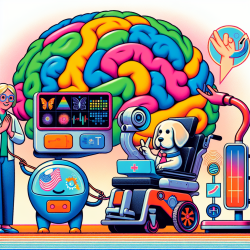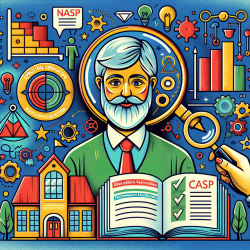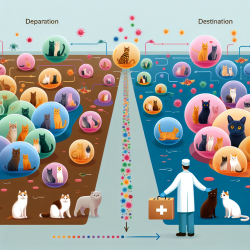Introduction
The advent of Large Language Models (LLMs) such as OpenAI's GPT-4 and Google's Gemini is revolutionizing numerous fields, including behavioral healthcare. These AI-driven technologies offer unprecedented potential to augment or even automate psychotherapy, promising to address the capacity constraints of mental healthcare systems and enhance access to personalized treatments. However, the integration of LLMs into clinical psychology requires a careful, evidence-based approach due to the high stakes involved in mental health interventions.
Understanding the Role of LLMs in Psychotherapy
LLMs are computational models trained to predict word sequences, enabling them to generate human-like text responses. Their application in psychotherapy is still in its infancy but holds promise for various clinical tasks, from providing psychoeducation to assisting in therapy sessions. The research article "Large language models could change the future of behavioral healthcare: a proposal for responsible development and evaluation" outlines a roadmap for the responsible integration of LLMs into psychotherapy, drawing parallels to the development of autonomous vehicle technology.
Stages of LLM Integration
The integration of LLMs into psychotherapy can be envisioned along a continuum:
- Assistive LLMs: At this stage, LLMs aid clinicians by handling low-risk, concrete tasks such as collecting patient intake information or summarizing session notes.
- Collaborative LLMs: Here, LLMs suggest treatment plans and generate therapy content, which clinicians can tailor and deliver. This stage parallels "guided self-help" approaches.
- Fully Autonomous LLMs: The ultimate stage where LLMs independently conduct comprehensive assessments and deliver therapy without human oversight, though this remains a theoretical goal.
Applications and Recommendations
LLMs can automate clinical administration tasks, measure treatment fidelity, and offer feedback on therapy worksheets. They also hold potential for automating aspects of supervision and training. However, to ensure safe and effective deployment, the development of clinical LLMs should focus on evidence-based practices, rigorous evaluation, and interdisciplinary collaboration. Behavioral health experts must guide the development process to address ethical considerations and potential risks.
Conclusion
LLMs offer a promising avenue for enhancing behavioral healthcare, but their integration must be approached with caution. Clinicians and researchers should engage actively with technologists to ensure that LLMs are developed and used responsibly, safeguarding patient wellbeing. For practitioners looking to improve their skills, understanding and leveraging LLMs can be a valuable asset in delivering effective, scalable mental health care.
To read the original research paper, please follow this link: Large language models could change the future of behavioral healthcare: a proposal for responsible development and evaluation.










